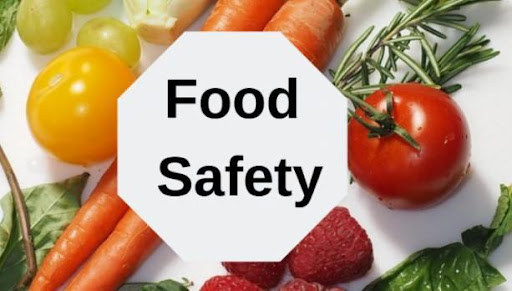Last Updated on April 12, 2024 by Admin
Table of Content
- Importance of Inspection for Food Safety
- How Does FSSAI Ensure Food Safety?
- Food Business Operators Who Need to Register with the FSSAI
- Food Safety Management System
One of the main factors affecting health is food safety and lack of proper safety inspection. It has an impact on people’s chances of living, health, livelihood, and production, and eventually, on the whole of society. Foodborne illnesses are a significant burden and issue for public health across the globe. Indian Journal of Public Health estimates ten crore foodborne illnesses annually in India. It results in 1,20,000 foodborne illness-related fatalities and 80 lakhs years of life lost due to disability caused by it every year.
Importance of Inspection for Food Safety

Food is a need for existence, but if contaminated food is eaten, it may lead to sickness and even death. As a result, safety inspections where food is being prepared must be in place. Anything intended for use or consumption by the general public must undergo several safety inspections and tests.
The public is shielded from dangerous food consumption by many governmental authorities. The Food Safety & Standards Authority of India (FSSAI) is a recognized organization in India that monitors, controls, and establishes safety regulations for the Indian food sector.
The Food Safety and Standards Authority of India (FSSAI), established by the Ministry of health and family welfare under the Foods Safety and Standards Act (FSSA), develops science-based regulations for the management of food items throughout their manufacture, preservation, sales, distribution, and trade.
According to the 2006 FSSA, voluntary certification is offered to food industry businesses. Doing this ensures that excellent production practices, including hazard analysis and key control points, are used. The regulations clearly describe the procedures. As a result, submitting a Food Safety Management System plan is required when applying for or renewing an FSSAI license.
Why Are Checks and Food Inspections Required?
Food checks and inspections are essential to safeguard public health and ensure food safety. Several reasons necessitate their requirement:
- Preventing Foodborne Illnesses: Regular inspections help identify and mitigate potential hazards, reducing the risk of foodborne illnesses.
- Ensuring Compliance: Inspections ensure that food establishments comply with local regulations and standards regarding hygiene, storage, and handling practices.
- Maintaining Quality: Checks ensure that food products meet quality standards, including freshness, cleanliness, and nutritional value.
- Protecting Consumers: Inspections help prevent adulteration, contamination, and fraudulent practices in the food supply chain, safeguarding consumers’ trust and well-being.
- Legal Requirement: Many jurisdictions mandate food inspections as part of regulatory requirements to uphold public health and safety standards.
Types of inspections in food establishments and importance
| Type of Inspection | Importance |
|---|---|
| Hygiene Inspection | Ensures compliance with hygiene standards, reducing the risk of contamination and foodborne illnesses. |
| Food Safety Inspection | Identifies and mitigates potential hazards, ensuring safe handling, storage, and preparation of food products. |
| Facility Inspection | Evaluates the cleanliness, organization, and maintenance of facilities to ensure a sanitary environment for food production. |
| Equipment Inspection | Ensures the proper functioning and cleanliness of equipment to prevent contamination and maintain food quality. |
| Regulatory Compliance Inspection | Ensures adherence to local regulations and standards, maintaining legal compliance and public trust in food establishments. |
| Supplier Inspection | Verifies the quality and safety of ingredients and supplies sourced from external vendors, ensuring the integrity of the food supply chain. |
| Allergen Control Inspection | Ensures proper identification, handling, and prevention of allergen cross-contamination, safeguarding allergic consumers’ health. |
| Temperature Control Inspection | Monitors and maintains proper temperature controls during food storage, preparation, and serving to prevent bacterial growth and food spoilage. |
How Does FSSAI Ensure Food Safety?
The FSSAI allocates every state a local food safety organization. These local organizations follow the FSSAI’s regulations. To safeguard health safety precautions, food safety inspectors are required to do safety inspections periodically.
For each Food Business operator, the food safety inspectors must also check the FSSAI license’s renewal and validity. They will ensure that strong measures are implemented and fines are levied if any complaints are received.
Food Business Operators Who Need to Register with the FSSAI
Obtaining an FSSAI Certificate from a city or county is mandatory for food trucks, cafes or restaurants, and chain eateries. If a food manufacturer’s annual revenue is over 12 Lakhs, they must apply for a license from the Food Safety and Standards Authority of India; if it’s less than that, they must apply for a certificate. Companies that produce or manufacture Fast-Moving Consumer Goods (FMCG) and have annual sales of more than 20 Crore must apply for a Central License from the Food Safety and Standards Authority of India.
Food Safety Management System

While the food industry is one of the most quickly expanding industries in India, the businesses operating in the sector have a moral obligation to ensure the security and well-being of their customers. Food safety, however, is not a one-stage process. Instead, it entails teamwork from all groups involved in the food supply and production. Cleaning supplies, insecticides, fertilizer, veterinary medications, caterers, restaurants, carriers, packaging suppliers, and feed manufacturers are also engaged. A Food Safety Management system can be a life-saving tool that food business organizations can use to ensure food safety at each facility.
All food industry owners must abide by the Food Safety Management System program, one of the rules that FSSAI has created. Food safety and the food safety management system go hand in hand. It contributes to ensuring the safety of the food offered by food service providers for human consumption.
The most prominent organizations offering management system certification programs are ISO, FSSC, and HACCP. The popularity of certifications is increasing. Large merchants and manufacturers now anticipate that their consumers will look for this accreditation before purchasing. This will aid in sickness prevention. Furthermore, when it comes to protecting consumers, a consistent method for guaranteeing the quality and safety of every step in the food chain becomes essential.
All food industry owners are required by the Food Safety and Standards Act of 2006 to have a Food Safety Management System strategy. A plan is still necessary regardless of whether a food company has a HACCP, ISO, or FSSC food safety accreditation. However, it is also simple for companies with these credentials to create Food Safety Management System strategies. Food Safety Management System plans are produced regardless of the nature and size of the food industry. The intricacy of the strategy will, however, depend on the kind of firm.
Takeaway
The FSSAI is in charge of India’s food safety and inspection service. Getting an FSSAI certification may be a make-or-break deal for your business if you’re considering starting your own food-related company. A reliable approach for ensuring the quality and safety of each stage in the food chain is crucial for safeguarding consumers, and a food safety management system in place can help with this. FSSC, ISO, and HACCP certification can also be obtained to assure your customers that your food is of high quality.













